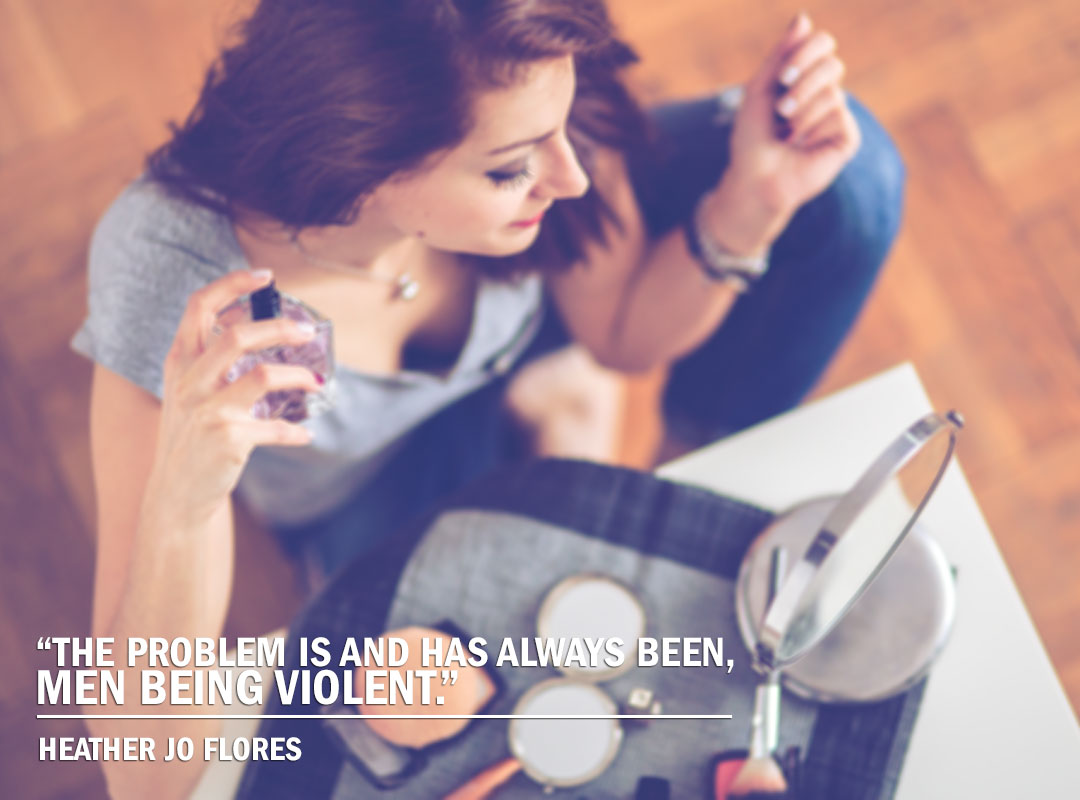
We are always working to strengthen the internship program that the Women’s Center offers for UVA students. In the Spring 2018 semester, as part of that effort, we provided a second part to the fall course that all of our interns take. Below is an example of the work our students have been doing in Front Lines of Social Change II. You’ll also find more about the classroom component of our work and links to other examples from our students in this month’s PALKO POV: Back in the Classroom.
In her article entitled, “ ‘White feminists, patriarchy, and solidarity: the dangling carrot’ Or ‘How to (maybe) keep yourself from being raped, beaten, forced into poverty and/or publicly shamed by your friends and family’”, Chicana feminist activist Heather Jo Flores writes: “I wanted to hate the White Pants Girls, but to be honest, I was in awe of them.”
Upon reading Flores’ description of the White Pants Girls—the stereotypical epitome of the “perfect”, “all-American”, straight-haired, well-dressed girls—I immediately knew who she was referring to. I also immediately understood the sense of feeling like an outsider in the midst of a sea of White Pants Girls. As a Lebanese American woman, I cannot remember a time when I was not hyper-aware of my own place within a whitewashed view of what it means to be beautiful and presentable and successful.
In middle school, I remember a group of the popular girls grabbing at my (painstakingly flat-ironed) hair, asking me if I was wearing a wig because my hair was usually “so much frizzier!”
In high school, I remember being told not to wear my hair curly to college interviews because curly hair “just doesn’t look professional.”
In college, I remember the feeling in the pit of my stomach as I saw thousands of skinny, blonde, artificially-tanned girls roll up to their dorms with stick-straight, frizz-free locks and impossibly unwrinkled T-shirts and Nike shorts and I remember wondering how they could be so perfect.
But Flores’ article is about much more than that feeling of dread that you get when you realize that you’re out of place as the result of your identity. It’s about coming to the following mutual understanding: that conversations about feminism “will do more harm than good if they result in the dehumanization of any women, for any reason.” While I think Flores’ argument gets it right in that feminism should be about supporting all women, of all identities and expressions and presentations, it is also important to realize the role that white (and often, white-presenting women, like myself) have in combatting oppression within feminist circles as well.
Flores goes on to argue that, instead of “attacking white women as the Big Problem”, we should be recognizing that, “the problem IS and has always been, MEN being violent.” But she also goes on to make the following caveat: “Not that the white ladies don’t need to get a clue. They do, but they are as much a victim of the patriarchy as anyone else, brainwashed since birth to conform or risk death on the daily.” Indeed, it is important to recognize the way that levels of oppression play into our conversations surrounding intersectional feminism in general, and the distinction between white and non-white feminism in particular.

While it is often the case that white women are perpetuating oppression simply by failing to reject some of the more ingrained sources of harm that their privilege as white people affords them, it is also often the case (as Flores mentions) that white women are the victims of that very same oppression, behind the mask of “perfection” that they are expected to wear.
This concept has recently been displayed in quite a profound way in modern media through the HBO series Big Little Lies. In the show, Nicole Kidman plays the role of a woman named Celeste who is in a severely physically and emotionally abusive relationship with her husband, played by Alexander Skarsgard. In the show, Kidman plays an extremely wealthy lawyer-turned-housewife who seems to have the “perfect” life. Her husband presents himself as a doting spouse and father to their two young children, and her friends are all jealous of the ideal life that she seems to have.
However, what Celeste’s friends don’t know is the extreme brutality that Celeste faces on a regular basis at the hands of her abusive husband. The domestic violence plotline in this show was based on a true story, which unfortunately is not a unique one in our society.
Indeed, as Flores notes, “Plenty of those White Pants Girls end up in awful marriages, abused, addicted to drugs, and worse.” Indeed, it seems that the White Pants syndrome can cut both ways. Ultimately, it is difficult to reconcile the ways in which white privilege can be damaging to both women of color and to white women, while working to preserve a feminism that leaves room for women of all identities.

